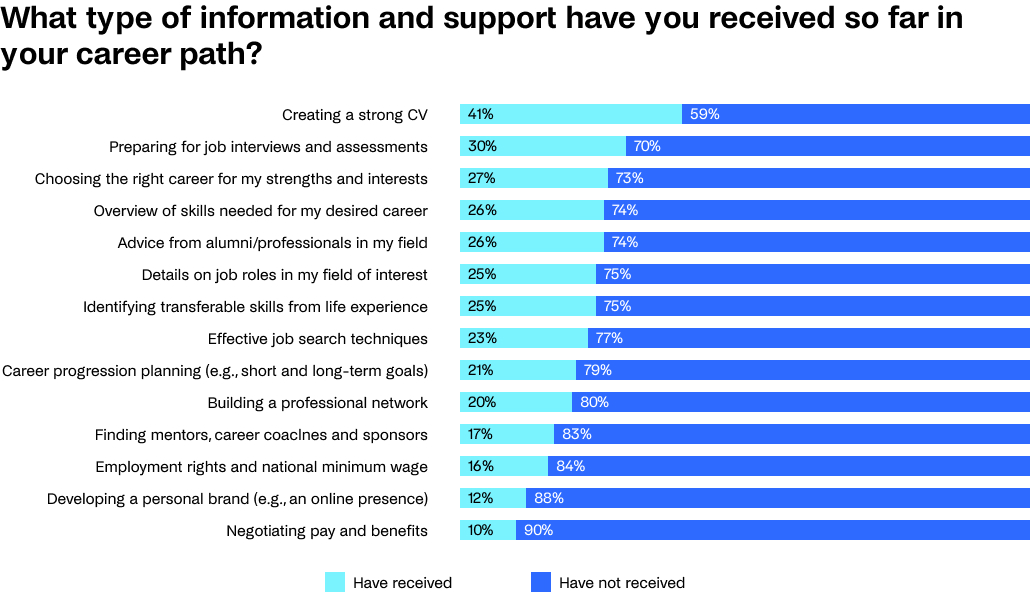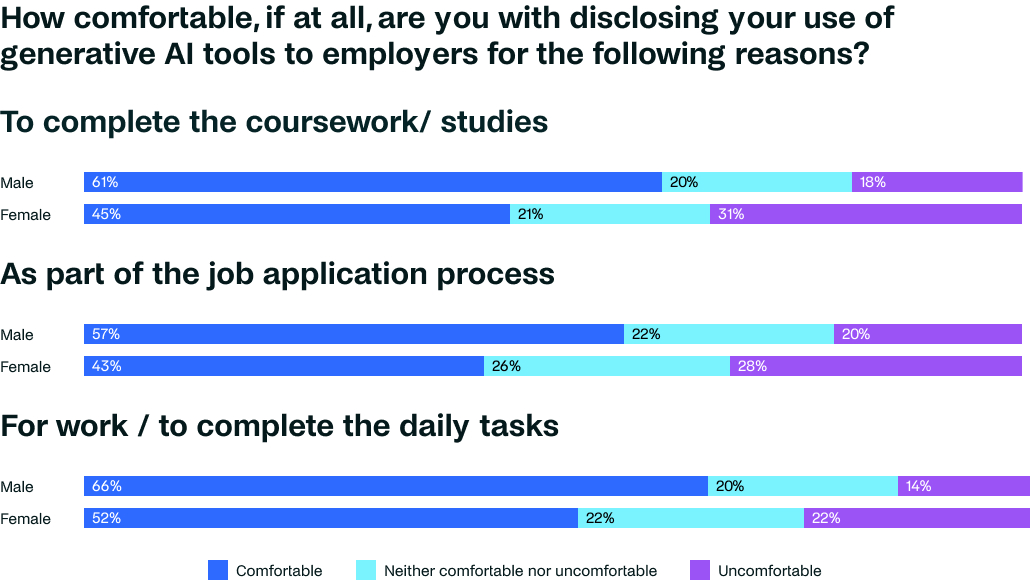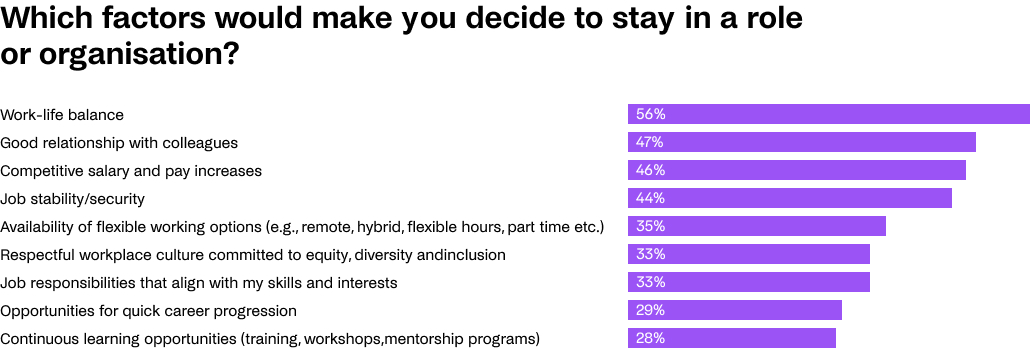A new report looks at how early talent are adapting to AI. Charles Hardy at Handshake shares key findings, highlighting the factors influencing early career decisions.
Technological innovations have transformed human civilisation over millennia. From the printing press to the smartphone, technology has revolutionised access to information and communication.
As we navigate through the latest era of technological advancements, it’s clear that generative AI holds significant potential. Its rapid adoption across various sectors is reshaping how students and graduates approach the workforce.
Navigating career information and advice
Today’s students have an array of career resources at their disposal, yet many do not access the support they need.
Handshake’s report on Early talent career influences in the AI age found a mere 27% say they’ve received adequate advice for career path selection, 30% for interview preparation, and just 20% for building professional networks.
The disparity is more pronounced among those from lower socio-economic backgrounds, creating an unequal footing in the recruitment process and a challenge for employers looking to reach a more diverse talent pool.

Despite the rising popularity of digital resources like social media videos, with a quarter of students and recent graduates turning to platforms like TikTok, YouTube, and Instagram for career advice when choosing a career path, traditional sources such as university career professionals, teachers, peers and professional contacts remain highly trusted and reliable.
Early talent shows a preference for direct engagement with employers, favouring in-person one-to-one discussions (71%) closely followed by direct messaging and emails (66%).
This trend underscores the importance of a hybrid approach in the early talent job market, blending personal interactions with digital methods.
Looking ahead, nearly half of the students and graduates plan to incorporate generative AI tools in their job search and preparations in the next six months. However, there’s a notable reluctance to disclose AI usage to potential employers, with female students and graduates feeling particularly uneasy about this disclosure.

As the use of generative AI grows, there’s an opportunity to balance new technologies with existing processes and interactions, amplifying the impact of in-person activities, expanding reach and impact by providing personalised, trusted, and scalable content.
What matters most to emerging professionals?
When considering job opportunities, students and graduates value location (54%), salary (51%), role alignment with skills and interests (51%), and flexible working options (50%). Attractive benefits (48%), clear career progression (48%), and development opportunities (46%) are also key factors.
In terms of retention, promoting work-life balance (56%), strong colleague relationships (47%), competitive salaries (46%), and job security (44%) are essential.

The appeal of in-person work lies in its ability to foster strong connections with colleagues and collaborative opportunities, while hybrid and remote models offer work-life balance and wellbeing benefits. Indicating a preference amongst students and recent graduates for a hybrid work pattern.
Connections and colleagues also significantly influence job choices, with 55% of students and recent graduates deterred from applying for a role by negative reviews about an organisation.
Meanwhile a welcoming and relatable team makes 42% of early talent more likely to accept a job offer, highlighting the importance of the opinions and relationships with peers for early talent throughout career discovery and the recruitment process.
Opportunities to utilise new AI technology also plays a role in attracting students and recent graduates to roles and organisations.
Nearly half (48%) of the students and graduates are inclined towards roles that involve AI tools, and a significant majority (62%) plan to acquire new AI-related skills.
With generative AI expected to contribute to global economic growth, employers have a substantial opportunity to enhance their workforce’s AI capabilities by attracting and retaining early talent.

Whilst general sentiment amongst early talent towards generative AI is optimistic, viewed more as an opportunity than a threat, there are concerns about its impact on career paths and a noticeable disparity in comfort levels with AI usage across gender and socio-economic backgrounds are emerging.
To prevent this gap from widening in the future, it is important that we normalise usage amongst all student and graduate demographics today.
Blending AI with human connection
At Handshake, we recognise the inevitable shift towards an AI-driven work environment and that for many of us AI is already changing how we approach everyday work tasks, from email drafting to risk assessments. Whilst we are exploring utilising generative AI to improve basic workflows, we are focusing our immediate development efforts on supporting students and recent graduates.
We are already piloting a new AI careers exploration assistant for students, embedded within the Handshake platform. This will help students with specific career-related queries right at the very moment they are contemplating their career journey, within a university endorsed trusted environment. It will not only provide on-the-spot information (e.g. the top skills related to that particular job), but also signpost university careers guidance and resources.
Our vision is that in combining generative AI with connections to real people and communities, in a people-powered platform, we can support the next generation of students in navigating this ever-shifting landscape.
Handshake’s report on Early talent career influences in the AI age was shared at ISE’s HE Conference. Catch up with more insights and trends from the event.
You may also be interested in…
Employers reveal how AI is changing early careers recruitment


0 Comments
Trackbacks/Pingbacks